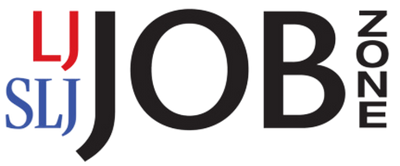Nurse Program Director - Substance Use Disorder Facility
Job Description
Job DescriptionDescription:
POSITION SUMMARY
The Program Director designs and manages all aspects of the facility operations and treatment program in accordance with state and JCAHO standards. The Program Director is responsible for the day-to-day operations of the facility and the logistics of clients during the intake and discharge processes as well as coordinating off site programming and medical services. The Program Director monitors these standards of care through the facilitation of weekly staff meetings, collaboration with the Clinical Director, auditing all chart documentation, coordinating with physicians in identifying treatment needs for all patients and approving all client treatment plans, as well as working with families and other treatment facilities to provide appropriate continuity of care.
To perform this job successfully, an individual must be able to perform each essential duty satisfactorily. Reasonable Accommodations may be made to enable qualified individuals with disabilities to perform the essential functions.
Essential Functions:
- Implements clinical program, directs patient care, and provides direct therapeutic care under philosophy of the company, under limited supervision.
- Follows and improves clinical objectives, standards, policies and procedures.
- Participates in agency quality improvement activities.
- Ensures program and staff compliance with regulatory standards and community standards of care.
- Ensures coordination of services for families and multi-disciplinary team members for patients in treatment.
- Assist with the recruitment, training and qualifying of staff, contractors and others (practicum students, interns) and supervises when required.
- Builds strong collaborative relationships with patients and referral sources, and acts as a representative of First Steps in the community.
- Reviews treatment plans and ensures accuracy of patient diagnosis.
- Leads interdisciplinary staff meetings with other professional staff members, doctors and counsellors to discuss, evaluate and develop treatment plans.
- Evaluates Joint Commission standards of practice and ensures ongoing compliance.
- Monitors nursing care and clinical care for all patients.
- Assists clinical and non-clinical staff in providing crisis-intervention.
- Oversees patients’ progress in treatment and ensures level of care is appropriate based on medical necessity.
- Oversees insurance compliance (utilization review, medical necessity criteria, clinical programing requirements).
- Consults with intake coordinator and operations manager regarding new admissions.
- Conducts individual, group and family counselling sessions.
- Assigns treatment responsibilities to multidisciplinary staff.
- Provides support on performance measurement and outcome evaluation.
- Attends and/or facilitates interdisciplinary staff meetings, case conferences, program team meetings, in-service and other meetings when appropriate.
- Records interventions and interactions with patients. Assists the family in working with the clinical staff toward treatment goals.
- Conducts KIPU reviews and ensures clinical and program compliance within EMR.
- Maintains compliance with HIPPA, ADA, Joint Commission and DHCS regulations.
- All other duties as assigned.
Requirements:
Competencies:
- Ability to multi-task, delegate tasks, manage client care, maintain facility standards.
- Desire to assist those with chemical dependency in their recovery
- Ability to manage staff with respect to screening, assessment, individualized treatment planning, crisis intervention, group and individual counseling, case management, referral, discharge summaries, clinical documentation, and professional ethics.
- Ability to establish and maintain cooperative working relationships with subordinate staff, supervisors, utilization reviews, managed health care clinicians, and medical and mental health professionals.
- Ability to positively interact and develop rapport with clients and their families.
- Ability to develop systems and methodologies for continuous improvement of program and treatment modalities.
- Ability to evaluate and review effectiveness of program, services, and group therapy designs.
- Ability to maintain culture of care that is conducive for maximum benefit of both clients and staff.
- Understanding of diverse cultures and gender specific issues and ability to incorporate needs of gender and culturally diverse groups into practice setting.
Qualifications:
- Obtain current state license and/or certification in a clinical and/or counselling capacity (e.g. Psychologist, LCSW, MFT, LAADC, etc.).
- Maintain valid CPR/First Aid certification.
- Maintain valid auto insurance
- Individual must be willing to work with a wide variety of symptoms related to chemical dependency and mental health.
- Willing to work with multi-cultural populations and have an understanding for cultural diversity.
Experience:
3 years of clinical experience, which must have included experience in a behavioral health care setting. Supervisory experience of 5 years or more.
Computer Skills:
- Computer Literacy in doc, spreadsheet, and email.
- Proficiency in KIPU Systems Client Management Software
Certificates & Licenses:
- Valid Driver’s License
- CPR/First AID
- Drug and Alcohol Counseling Credential or LVN/ RN License
Other Requirements:
- Negative TB test
- Medical Clearance to work
- Ability to pass pre-employment drug screening
PHYSICAL DEMANDS
- Ability to lift/carry 20lbs
- Moderate frequency of computer keyboarding
- Moderate frequency of viewing a computer monitor
WORK ENVIRONMENT
Work is performed during day and night shifts primarily in residential detox facility. This includes work in facility office as well as the grounds of the entire facility including upstairs resident rooms, clinical office, and laundry room that are accessed via staircase, and outdoor grounds. Employees periodically drive clients in company vehicles for intakes/discharges at other treatment facilities and transportation hubs, to doctor appointments, to outings and recovery meetings. Work is periodically performed in emergency and stressful situations. The noise level in the work environment is usually quiet in office settings and moderate in other situations.
BLOOD/FLUID EXPOSURE RISK:
Some job tasks involve exposure to blood, body fluids and/or tissue. Staff must wear gloves and follow infectious control procedures when interacting with clients in conditions in which exposure is possible such as handling onsite urinary analysis, conducting first aid, and conducting search of client’s belonging and person. Staff may be exposed to infectious disease, needles, and illicit substances during searches.
Work Schedule:
As an exempt salaried employee, the employee shall work a designated number of hours per week as assigned by management. Employee must also follow company’s policies regarding required meals and breaks.
